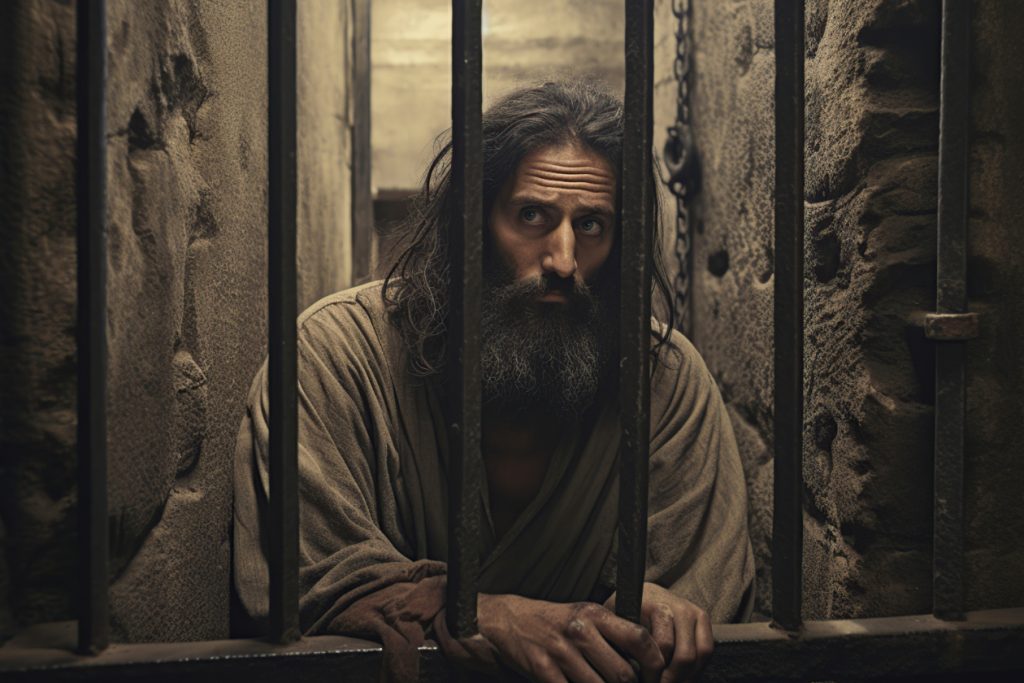In this, the first in a series of short reflections on his work as a clinical psychologist, Advayacitta considers the phenomenon of irrational guilt
I remember that when I worked at a Secure Unit, I was asked to psychologically assess someone — a woman in her sixties — who had been shoplifting. Before I saw her, I was invited by the local police to see what they had found in her house. I duly went to the police station and was taken to a large upstairs room. It was full of unopened boxes and packages. The detective involved told me that these had been found at her house, which had been packed full of them. Apparently, they had all been shoplifted, but none of them opened and used. This reminded me of the behaviour of some obsessional people whose houses become full of objects which they do not remove. The difference was that these objects had been stolen. Clearly, they had not been stolen to fulfil any practical or financial purpose.
When I saw the woman, she was most unwilling to discuss why she had stolen and hoarded all the items, and also very guarded about her past history. I obtained little useful information from her. What I did learn, however, was that she was originally from Germany, had grown up between the two world wars, and had had to belong to the Nazi youth movement. I started to wonder whether she felt guilty about this, and if her shoplifting might be a way of committing an offence which would lead to the punishment she believed she deserved because of her past. This was just a hypothesis on my part — something I could not confirm.
Not so long after that I visited Broadmoor, a high security psychiatric hospital, for a couple of days as part of my in-service training. On the first morning I sat in on a long case discussion about a new patient. I forget now what crime he had committed, but his mental state and behaviour had meant that he was sent to Broadmoor rather than an ordinary prison. During the case discussion a detailed history of his life was read out. What struck me forcibly was that when he was a boy he had been in a very serious car accident, and was the only member of his family to survive it. From that, and from other aspects of his history, I began to wonder if the crime which got him to Broadmoor had been committed in order for him to be punished for a sense of guilt about the car accident.
That afternoon I met up with Broadmoor’s psychotherapist. I told him about the case discussion I had witnessed, and mentioned that I was wondering whether the man had committed a crime in order to be punished, due to irrational guilt about the accident. I asked him what he thought about that hypothesis. I will never forget his answer. “Oh, yes” he replied emphatically, “we have many people here like that. They feel irrationally guilty, and they commit a crime to get here”.
Since those days I have learned that many people suffer from irrational guilt, which can happen for various reasons. A common one is that the person was emotionally abused or neglected as a child. Many such children come to blame themselves for the abuse and neglect, rather than blame their abusive parents. For a child, this seems to be a way of coping psychologically in such circumstances. But then the self-blame and associated guilt persist, and can interfere with their mental state and relationships with other people throughout their lives, unless they find ways to overcome the effects of the childhood harm.
I also came to recognise that irrational guilt can be an aspect of religious or ideological beliefs. I remember an evangelical Christian leaflet posted through my letterbox. It depicted a man who did not believe in God, and who felt sexual attraction to women who were not his wife (although he did not act upon this). He was shown as dying and then facing the gigantic figure of Jesus, who found him guilty of those sins and then sent him to Hell for eternity. Apparently, because he did not believe, and was attracted to women, he deserved eternal punishment; Jesus, the god of love, was not being abusive. This was just like abused children blaming themselves and not their parents.
Irrational guilt can also be inculcated by political ideologies, especially ones which demonise particular groups of people, as Nazism did with Jewish people, and Communism did with ‘the bourgeoisie’. The people in the demonised groups were often expected to confess their supposed guilt. For example, Maoist China imposed enforced ‘study sessions’ in which people had to admit their guilt for being in the wrong group. This is vividly described by Palden Gyatso in ‘Fire under the Snow’:
The group meetings became a dangerous forum. No-one was exempted from answering the Chinese officials’ questions. We had to say whether we were the oppressed or the exploited. Most important of all, we had to declare whether we were the oppressors or the exploiters. (p60, chapter 4, ‘The Arrest’)1
The contemporary Critical Social Justice movement, with its caste system of intersectionality, also inculcates irrational guilt, dependent upon which group one is deemed to belong to. Heterosexual white men are the supposedly most guilty caste, who should forever repent their sins. In a worrying parallel with Maoist China, this is often done through group sessions in which, for example, people confess their ‘whiteness’ and ‘privilege’.
There is even a form of irrational guilt that occurs at times amongst Buddhists. This is to blame any harm that one suffers as having happened because of one’s own unskilful behaviour in the past. Yet the Buddha is recorded in the suttas as having disagreed with this idea. In the Sivaka Sutta he mentions other possible causes of the feelings (vedanā) one experiences, not just one’s past behaviour — such as feelings caused by physical illness.2 He states that people who argue that all feelings come from one’s own past behaviour ‘overshoot’. In other words, they have committed a logical error and are not taking into account the evidence for other possible causes.
Feelings of irrational guilt need to be distinguished from a healthy sense of remorse for any unethical behaviour one actually has committed. Sharon Salzberg, in her book ‘Loving Kindness’, contrasts healthy remorse with the aversion towards oneself that she identifies as the feeling of guilt.3 This is a vital distinction to understand for anyone wishing to develop psychological and spiritual heath. Of course, the word ‘guilt’ is at times used by people to refer to what actually is healthy remorse. But it also at times refers to the type of self-aversion that Salzberg describes. To use different terms for the healthy reaction and the unhealthy — remorse versus guilt — helps one distinguish them clearly. This is a distinction that is vitally important to understand. We need a healthy sense of remorse, but also need to relinquish the self-hatred that a feeling of guilt so often embodies.
Footnotes
- Palden Gyatso; Fire under the Snow; Harvill Press, 1997
- Sivaka Sutta; Samyutta Nikaya 36.21
- Sharon Salzberg Loving Kindness – The Revolutionary Art of Happiness; Chapter 5; Shambala, 1997



